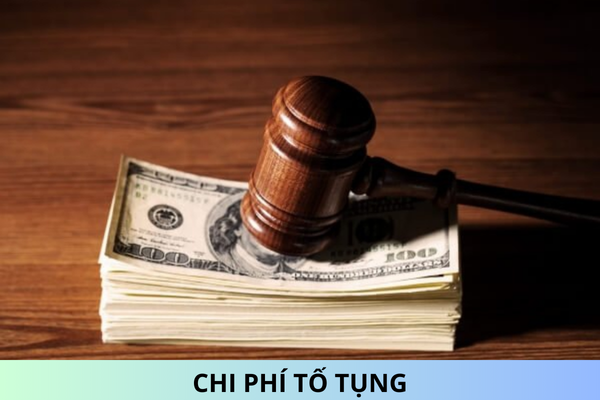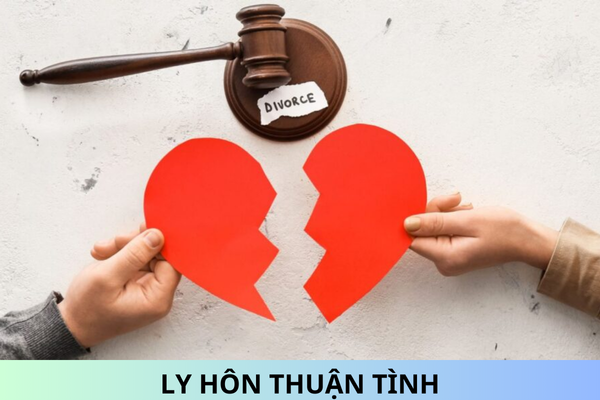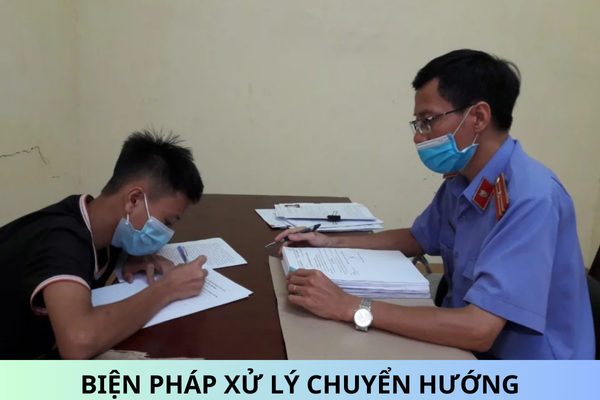What is inspection of procedural law in the settlement of inheritance division disputes according to first-instance procedures in Vietnam?
What is inspection of procedural law in the settlement of inheritance division disputes according to first-instance procedures in Vietnam? What is inspection of determination of the time of opening the inheritance and the statute of limitations for initiating lawsuits over the division of inheritance according to first-instance procedures in Vietnam? What is determination of inherited estate, heritage value, current status, process of using and managing the estate according to the inspected first-instance procedures in Vietnam?
Please advise.
What is inspection of procedural law in the settlement of inheritance division disputes according to first-instance procedures in Vietnam?
Pursuant to Item 1.1, Subsection 1, Section II, Guideline 24/HD-VKSTC 2021 stipulating inspection of procedural law in the settlement of inheritance division disputes according to first-instance procedures as follows:
1.1. About procedural law
When supervising the settlement of the inheritance division dispute, it is necessary to comply with the provisions of Articles 21, 57, 58 and 59 of the Civil Procedure Code (CPC), other provisions of the CPC and documents guiding the implementation of the Civil Code on procedures for settling civil cases according to first-instance procedures; Regulations on guiding the activities of procurators participating in first-instance civil court hearings are promulgated together with Decision No. 458/QD-VKSTC dated October 4, 2019 of the Procurator General of the Supreme People's Procuracy (Regulation Decision No. 458/QD-VKSTC dated October 4, 2019).
What is inspection of determination of the time of opening the inheritance and the statute of limitations for initiating lawsuits over the division of inheritance according to first-instance procedures in Vietnam?
According to Sub-section 1.2.1, Section 1.2, Sub-section 1, Section II, Guideline 24/HD-VKSTC 2021, which regulates the inspection of determination of the time of opening the inheritance and the statute of limitations for initiating lawsuits over the division of inheritance according to first-instance procedures as follows:
When supervising the settlement of inheritance division disputes, procurators, inspectors and civil servants should pay attention to the following issues:
1.2.1. Determining the time of opening the inheritance and the statute of limitations for initiating lawsuits for disputes over division of inheritance
- The time of opening the inheritance is the time when the person with the property dies or is declared dead by the court. The determination of the time of opening the inheritance is important in determining the estate of the deceased, determining the heirs, the statute of limitations for initiating lawsuits and the applicable law to settle inheritance disputes,...
- According to the provisions of Article 184 of the Civil Code , Clause 2, Article 149 of the Civil Code 2015 (Census Code 2015), the Court only applies the provisions on the statute of limitations for initiating lawsuits upon the request of one party or the parties to the application of the statute of limitations. This required condition must be made before the first-instance Court issues a judgment or decision to settle the case.
In case the statute of limitations for initiating a lawsuit no longer exists but none of the involved parties have requested the application of the statute of limitations or made a request inconsistent with the provisions of law, the court shall continue to resolve the case.
In case the involved parties request the application of the statute of limitations in accordance with regulations, it is necessary to clarify the time of opening the inheritance (the beginning of the statute of limitations for lawsuits) and the date of filing a lawsuit to determine whether the statute of limitations is still available or has expired.
When determining the statute of limitations for initiating an inheritance lawsuit, it should be noted that the time regulations do not include the statute of limitations for initiating lawsuits (in case of force majeure events, objective obstacles), the regulation of restarting the statute of limitations for initiation of lawsuits in the Civil Code.
- To determine the statute of limitations for initiating lawsuits to request the division of the inheritance, it is necessary to master the provisions on the statute of limitations for initiating lawsuits in Article 184 of the CPC , Articles 149 and Article 623 of the 2015 Civil Code, Article 4 of Resolution No. 02/2016/NQ-HDTP dated June 30, 2016 of the Judicial Council of the Supreme People's Court, Case Law No. 26/2018/AL of the Judicial Council of the Supreme People's Court and refer to Sections 1, 2, Part III Answering problems No. 01/GD-TANDTC dated 25/7/2016 and Part I Answering questions No. 01/GD-TANDTC dated 05/01/2018 of the Supreme People's Court. Accordingly, the statute of limitations for the heir to request the division of the estate is 30 years for immovable property, 10 years for movable property, from the time of opening the inheritance. At the end of this period, the estate belongs to the heir who is managing the estate.
For the case of inheritance opened before September 10, 1990, the statute of limitations for initiating a lawsuit to divide the inheritance being immovable property shall comply with the provisions of Article 36 of the Ordinance on Inheritance 1990 and the guidance in Resolution No. 02/HDTP dated October 19, 1990 of the Council of Judges of the Supreme People's Court guiding the application of a number of provisions of the Ordinance on Inheritance, namely: Statute of limitations for initiating lawsuits to request division of inheritance calculated from September 10, 1990.
For the case of inheritance opened from September 10, 1990 to before January 1, 2017 (the effective date of the Civil Code 2015), the statute of limitations for initiating a lawsuit requesting the division of the inheritance is 30 years for immovable property and 10 years for movable property is calculated from the time of opening the inheritance.
In case the inheritance is opened before July 1, 1991 but there is no overseas Vietnamese participating and the inheritance is a house, the statute of limitations for initiating a lawsuit shall be determined according to the provisions of Resolution No. 58/ 1998/NQ-UBTVQH10 dated August 20, 1998 of the National Assembly Standing Committee (Resolution No. 58/1998). Accordingly, the period from July 1, 1996 to January 1, 1999 (the effective date of Resolution No. 58/1998), does not include the statute of limitations for initiating a lawsuit (Clause 2, Article 17 of Resolution No. 58/1998 ).
In case the inheritance is opened before July 1, 1991, and there is an overseas Vietnamese participating and the inheritance is a house, the statute of limitations for initiating a lawsuit is determined according to the provisions of Resolution No. 1037/2006. /NQ-UBTVQH11 dated July 27, 2006 of the National Assembly Standing Committee (Resolution No. 1037/2006). Accordingly, the period from July 1, 1996 to September 1, 2006 (the effective date of Resolution No. 1037/2006) is not included in the statute of limitations for initiating lawsuits (Clause 2, Article 39 of Resolution No. 1037/2006 ).
What is determination of inherited estate, heritage value, current status, process of using and managing the estate according to the inspected first-instance procedures in Vietnam?
In Sub-section 1.2.2, Section 1.2, Sub-section 1, Section II, Guideline 24/HD-VKSTC 2021 stipulating determination of inherited estate, heritage value, current status, process of using and managing the estate according to the inspected first-instance procedures as follows:
1.2.2. Determining inheritance, heritage value, current status, process of using and managing heritage
- The inheritance to be distributed to the heirs is the portion of the estate remaining after fulfilling the property obligations left by the deceased.
- In order to resolve the dispute over the division of the inheritance, it is necessary to clearly define what the inheritance includes. Disputed property value? Determine how the estate is actually being used and consider the claimant's requests to distribute the estate.
- It is necessary to determine the current status of the inheritance, the origin, the transformation process and the actual status of each type of heritage; the effort of the person maintaining and developing the property is the heritage; the efforts of the person taking care of the person who left the estate; funerals, anniversaries, Tet,... related to the person who left the estate; How is the estate being managed and used? Requirements and opinions of the estate manager on the deduction of effort for managing the estate? To clarify the above issues, when researching, it is necessary to consider documents related to the origin, value and current status of the property at the time of inheritance opening, the time of request for inheritance division such as: opinions, self-declarations, minutes of testimonies of the involved parties, written certifications, provision of evidence, minutes of on-site appraisal, minutes of determining the current state of assets, measurement of houses and land, location , size, who is managing use, record of valuation, appraisal of property prices,... For assets subject to registration of ownership and use rights, attention should be paid to determining the legal nature of the property, considering the origin and movement of the property. property over time, the process of implementing the State's renovation policy for this type of property to propose an appropriate solution. At the same time, it is necessary to clarify the efforts of the heritage manager in maintaining and developing the heritage block; caretakers' efforts, funerals, and Tet anniversary responsibilities for the dead,.... it is necessary to clarify the efforts of the heritage manager in maintaining and developing the heritage block; caretakers' efforts, funerals, and Tet anniversary responsibilities for the dead,.... it is necessary to clarify the efforts of the heritage manager in maintaining and developing the heritage block; caretakers' efforts, funerals, and Tet anniversary responsibilities for the dead,....
- For inheritance in the common property of husband and wife, it is necessary to study and apply the Law on Marriage and Family of 1959, 1986, 2000 and 2014; Resolution No. 35/2000/NQ-QH10 dated June 9, 2000 of the National Assembly, Resolutions of the Council of Judges of the Supreme People's Court, Case Law No. 03/2016 to determine the value of common property of spouses, thereby determining the estate of the deceased.
- The determination of the inheritance related to the common property of the household requires examination and consideration of documents and evidences about the creation process, time of use and contributions of the deceased to the family. that common property, to determine the share of the deceased's estate.
- Clarify whether the estate is the separate property of the deceased or the part of the deceased's property in the common property with others. The part of the deceased person's property in the common property with other people may be the part of the property under the consolidated joint ownership of the husband and wife or in the part of the property under common ownership with other dependents. depends on the manner and basis of establishing those forms of ownership.
+ For the dispute over the division of the inheritance that is the land use right: In case the land has papers proving the land use right, the land documents must be examined together with the land management documents. and assets on land (if any) to consider and evaluate whose land use right, and what specific area? When studying the records, attention must be paid to the following documents: Evidence of the origin and history of land use presented by the disputing parties; minutes of conciliation in communes and wards; actual land area the involved parties are using; What is the process of declaring and paying land use tax and the opinions and views of the parties in the annual land use process? Is there objection or agreement when the other party uses land that it considers not under his/her right to use. The suitability of the current state of the disputed land with the detailed land use plan approved...
+ Trial practice shows that many cases of inheritance division are canceled many times because when settling, the Court does not carefully consider the origin, the transition over time, the fluctuations of the property as the estate. in the process of implementing the State's policies from time to time, even without considering the existing (non-legacy) assets, existing in the disputed property or division of the estate. Not suitable with the reality and needs of the involved parties such as: Property can be divided in kind but only assigned to one party to own or use when this person is unable to pay the value for other heirs in the when there are other involved parties who also request to be divided in kind or divide the estate among equal heirs but the use value of the estate is different. In case the inheritance is contributed capital in the enterprise, stocks, bonds,
* Note: In case the inheritance is real estate that has been transferred by one of the co-heirs to another, the other co-heirs know and do not object to such transfer, the amount received for the transfer has been used to take care of the lives of the co-heirs, the transferee has been granted a certificate of land use rights. In this case, it must be recognized that the land use right transfer contract is legal and the transferred land area is no longer in the estate block for inheritance but belongs to the transferee's right to use.
In the case of a dispute over the division of the inheritance, there is an involved party who is entitled to a part of the inheritance and has made efforts to contribute to the management and embellishment of the inheritance but disagrees with the division of the inheritance because they think that they have been given a verbal gift by the estate or the statute of limitations for inheritance has expired), they do not have specific requirements for considering their efforts to contribute to the management and embellishment of the estate inherit; if there is a basis for dividing the inheritance among the heirs, they must consider their efforts in contributing to the management and embellishment of their heritage.
Best Regards!











